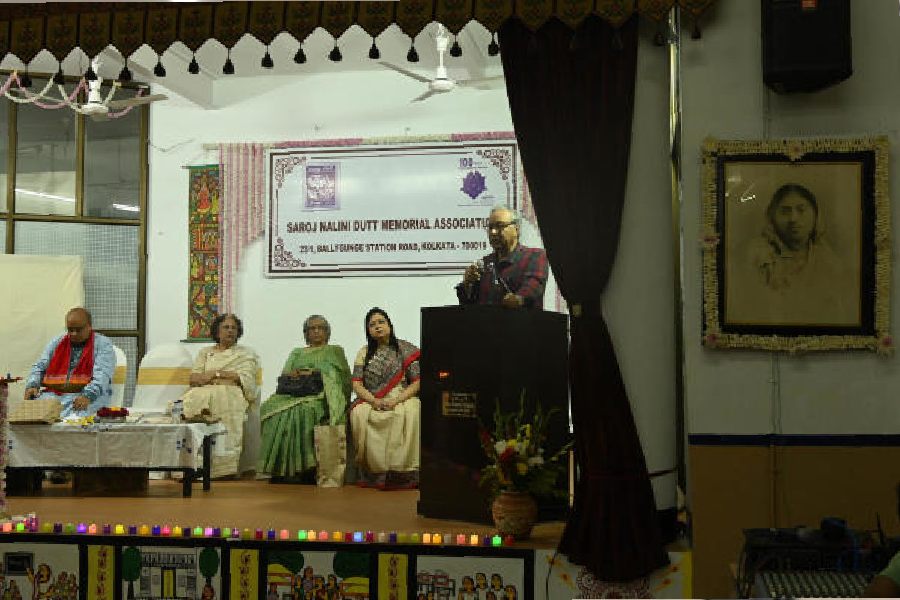Calcutta: An association that honoured a woman, who had worked to empower women at the grassroots level more than 100 years back, celebrated its centennial anniversary in the city on Sunday.
Saroj Nalini Dutt’s work lives through the Saroj Nalini Dutt Memorial Association, founded by her husband, Gurusaday Dutt, in 1925 after his young wife’s death.
“It was the plight of the rural women that touched Saroj Nalini sowing the seeds of realisation to make things better for their dignified survival...We salute the philosophy of Saroj Nalini Devi who conceptualised the power of educated and empowered who would bring about social progress amidst the existing patriarchal constraints,” writes Aditi Chowdhury, president, Saroj Nalini Dutt Memorial Association in the centennial volume.
The centennial volume, Kaleidoscope, which traces the association’s journey in the last 100 years and paves the way for the future, was released on Sunday during a ceremony at its centre on Ballygunge Station Road.
It contains writing by Devsaday Dutta, Saroj Nalini’s grandson.
“Gurusaday Dutt’s wife was beside her husband but not in the same kind of work. She chose her area of work. She first started working in Pabna (now in Bangladesh) with women who were under purdah,” said Jawhar Sircar, former MP and retired IAS officer, the chief guest.
While Gurusaday Dutt aroused nationalism in his own way Saroj Nalini could set up Nari Sikha Samitis all over Bengal, Sircar said.
“In the 1920s, it had a very profound impact. At the cutting edge, she played a big role — at the grassroots level not only at the educated level. Nari Sikha would later on become a model for women’s development after Independence,” Sircar told The Telegraph.
Bengal’s former election commissioner, Mira Pande, also a trustee of the association, raised questions about whether women today are truly empowered to make their own decisions.
“What percentage of our women are really strong? Our representation in the Parliament is 14 per cent, in the state Assembly 13 per cent, and in panchayati raj institutions about 45 per cent. But if we see these panchayati raj institutions, the number of women who have been elected, a large proportion of that is run by their husbands. That they have been elected is a step forward but we have failed to give the women that confidence or opportunity that she will take decisions,” said Pande.
The day the woman will be able to make decisions both inside and outside the house, that day we can say we have been able to empower women in real terms, said Pande.
“While many women are independent that is not a reality for all,” she said.
The third guest of the evening was author and political scientist, Sumantra Bose, the grand nephew of Subhas Chandra Bose.
The association in the last 100 years has been working for women’s health and childcare, education, vocational training, nursing training and computer education.
“The very thought of having economic independence was infused by her (Saroj Nalini) to the so-called illiterate community of women and our job is through these 100 years, we have tried our best to continue with her work,” said Aparna Ghose, the general secretary of the association.
“Women empowerment is still a long way to go. We haven’t come out of a patriarchal society and so the consciousness within the opposite sex is yet to come that women should be treated equally and respectfully,” said Ghose.










